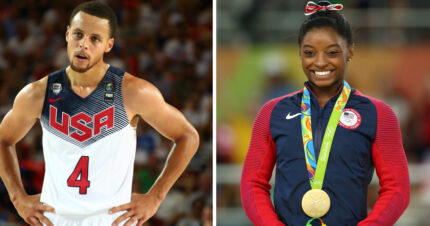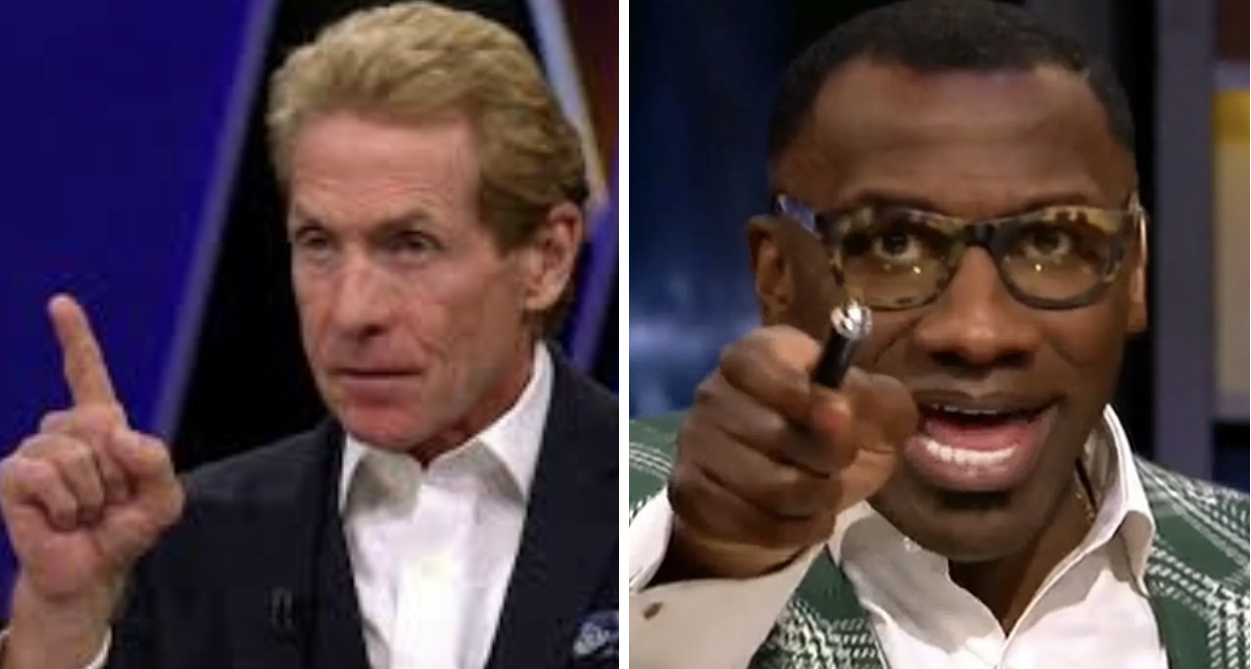In the past half-decade, Jemele “Juice” Hill has elevated to the status of respected mouthpiece for an entire generation of women and people of color. Her words are uplifting to the voiceless and disenfranchised and simultaneously a chainsaw cutting through systemic racism and a flashlight exposing the social injustice and inequities and hypocrisies in our nation.
On top of all that, she’s just a down ass woman.
READ MORE: TSL Leadership Series: The Diary of Jemele Hill
Before Hill made history in her stint as the co-anchor of ESPN’s SportsCenter (SC6) and then in one Tweet elevated the trajectory of her career, the mega-celebrity was a girl from Detroit with hopes, dreams and challenges familiar to a Black child growing up in urban America.
No one knows Jemele better than her best friend, veteran entertainment journalist Kelly L. Carter, so it’s only fitting that Jemele’s first Playboy interview be conducted by Carter who’s also a Detroit native. Carter has worked for various publications, spearheading entertainment and celebrity news at Buzzfeed, Ebony (to name a few) and in her current role as Senior Entertainment Writer, The Undefeated (ESPN).
READ MORE: TSL Leadership Series: The Diary of Jemele Hill, Part II
Over her career, Carter has interviewed some of the country’s A-list movie and music stars such as Brad Pitt, Angelina Jolie, George Clooney, Oprah Winfrey, Jada Pinkett Smith, Samuel L. Jackson, Denzel Washington, Drew Barrymore, Jamie Foxx, Jay-Z, Beyonce, Mary J. Blige, Sean Combs and more.
Available to read on Playboy.com, this candid discussion with the Emmy-winning writer, thinker and truth-teller peels back the many layers of Hill’s life. The pair discussed growing up, Hill’s relationship with her father, her suspension from ESPN, her first year of marriage, the duo’s production company, and of course President Joe Biden.
I can officially say I have appeared in Playboy magazine. Even better, my best friend @KelleyLCarter wrote the piece on me. I’d like to think it’s worth your time. All photos are tastefully done 😊 https://t.co/obxcJEFimC
— Jemele Hill (@jemelehill) February 11, 2021
******************************************
Here are some top takes from Playboy’s latest edition of The Playboy Interview, one of the magazine’s most iconic franchises.
JEMELE HILL ON GROWING UP.
PLAYBOY: Speaking of high school, let’s talk about growing up. I remember a conversation, years ago in New York; you jokingly said something like, “You can tell I didn’t grow up with a positive male figure in my life!” Tell me about when you met your dad and how that affected you.
HILL: My mother and father had a volatile relationship. There was abuse, physical and verbal. My mother left him, and my father sunk deeper into drug culture. But even when he was knee-deep in drugs—he got addicted to heroin—my mother would still make it a point to try to keep me connected to his side of the family. I saw my grandparents, cousins, some uncles, but my father was absent. Just MIA. During that time my mother got married, and so my first memories of a positive black male figure were of my stepfather, my mother’s first husband. For a period I thought he was my biological dad. But after my father got clean, he started coming around; I was nine or 10 years old.
JEMELE HILL ON HER RELATIONSHIP WITH HER FATHER.
PLAYBOY: Do you think the fractured relationship with your dad impacted how you relate to Black men?
HILL: It’s funny you say that because I have noted the fact that he’s a recovering addict in previous interviews. He has been clean and sober for decades now, which I also often note. Yet there is this narrative that I hate Black men because of my father, which I find to be weirdly weaponized. I didn’t ever look at my father and say, “Well, all Black men ain’t shit because of what my daddy did.”
If anything, it helped me give Black men even more grace because I had learned to accept somebody for who they are. It’s that understanding that he dealt with a very serious addiction, and the way he picked himself back up was not easy to do. I have much more grace because I lived through that experience. I don’t look at all Black men and see somebody who will ultimately disappoint me—not at all. Otherwise, I would not have married a Black man.
JEMELE HILL ON HER SUSPENSION FROM ESPN.
PLAYBOY: You started in February 2017; six months later, you sent out the tweet heard ’round the world, calling out President Trump as a white supremacist. The White House called for you to be fired. ESPN later (and unrelated of that tweet) suspended you two weeks, and shortly after you left SportsCenter. Were you surprised at the backlash?
HILL: Hell, yeah! I didn’t feel it was that controversial. I didn’t think it was breaking news. I didn’t think it was particularly intelligent, from the standpoint that it didn’t teach people something new. That was my impression. But the fact that people responded to it in such a strong way had to do with gender, race and platform. And by platform, I don’t mean Twitter, I mean me being somebody who represented ESPN. I’m representing a show where the hosts are not known to have those kinds of opinions.

Even though I did not make the observation on an ESPN platform, to a lot of people it was the same thing. I was stunned. Consider the context of the narrative ESPN was caught up in at that time. It was being accused of being too political and too liberal by people who had their own agendas. When they said too political and too liberal, they meant too Black, too diverse, too inclusive.
As soon as certain faces became more prominent at the network, ESPN was accused of capitulating to the liberals. Bomani Jones and Dan Le Batard were in a really elevated position, and myself and Mike had taken over the six o’clock SportsCenter, and Sarah Spain and Kate Fagan—all these new faces representing different things.
JEMELE HILL ON MARRIAGE.
PLAYBOY: Most of your first year of marriage was spent in a global pandemic, and you still like him! That’s amazing because as we have seen with other couples, that has been very challenging.
HILL: When we were engaged, he traveled a lot for work, I traveled a lot for work. There would be some weeks where we were like two ships passing in the night. We might—in a given week—spend two nights together, three nights tops. We were both very understanding of each other’s schedules.

But what the pandemic has taught me is I don’t know if we would have survived doing that. Our busy schedules never created any tension. He never said to me, “Don’t take that speaking engagement.” But I don’t want to go back to that anymore. This time has really has changed me, and by extension, us, permanently. I was hearing about some couples that were arguing, meanwhile the only thing I was thinking was, Shit. We are spending a lot of time together. I might wind up pregnant after this.
JEMELE HILL ON HER & CARTER’S PRODUCTION COMPANY.
PLAYBOY: We’re also business partners. Our production company, Lodge Freeway Media, just got its first development deal for a Showtime series about two black women who are doing well in their careers. They’re best friends. They’re from Michigan, went to the best university, which of course is Michigan State. It’s not us, but people might see the show and see a lot of similarities. How do you feel about that?

HILL: I’m going to have to do a lot of explaining after every episode. “No, I really didn’t take molly. That wasn’t me.” I think people are going to be into it. We have an amazing team. We’ve come up with an amazing concept, and even if you aren’t living that exact same situation, there’s so much to identify with—especially for Black women. I’m looking forward to people’s reactions, but I’m going to be nervous. Regardless of whether it winds up a pilot or airing for the next 10 years, I’ll feel good about it because we did it our way. We presented and sold the story that was important to us. It’s hard not to feel good about it.
JEMELE HILL ON JOE BIDEN’S ELECTION WIN IN CONNECTION TO HER TWEET FOLLOWING CHARLOTTESVILLE.
PLAYBOY: Joe Biden says what happened in Charlottesville made motivated him to want to run for president again. And the tweet that earned you so much notoriety was a reply to what happened in Charlottesville. Have you ever thought about that connection?
HILL: I have not, but it is strange because you never know what incident will touch off an entirely different emotional reaction. It wasn’t like I didn’t know the depths of racism before Charlottesville. But that day it was different. Even former presidents who I have not agreed with politically, I could never see them doing that. As much as I hated George W. Bush at one point for his politics, he is not going to get up there and be like; there were “very fine people on both sides.”
JEMELE HILL ON KAMALA HARRIS.
PLAYBOY: How do you feel about the new presidential administration?
HILL: Black folks elected Joe Biden. To me, that is a beautiful thing. As much as I have issues with some things that Joe Biden has done—I didn’t vote for him in the primary—I’m looking forward to not waking up every day to find out that the president has had some fucking Twitter tantrum that may have created a war.

I’m a supporter of Kamala Harris. I’m invested in her success, and I want to see Black women win. I’ve had the opportunity to get to know her, and she’s the real deal. I said the same thing about the Obamas.



